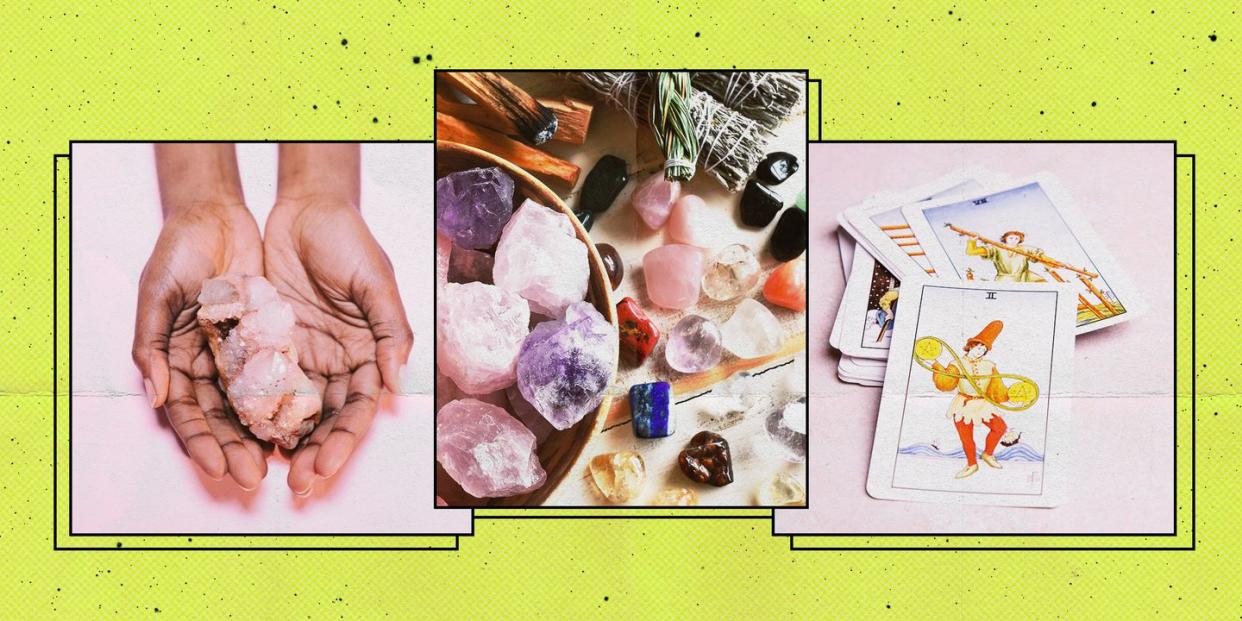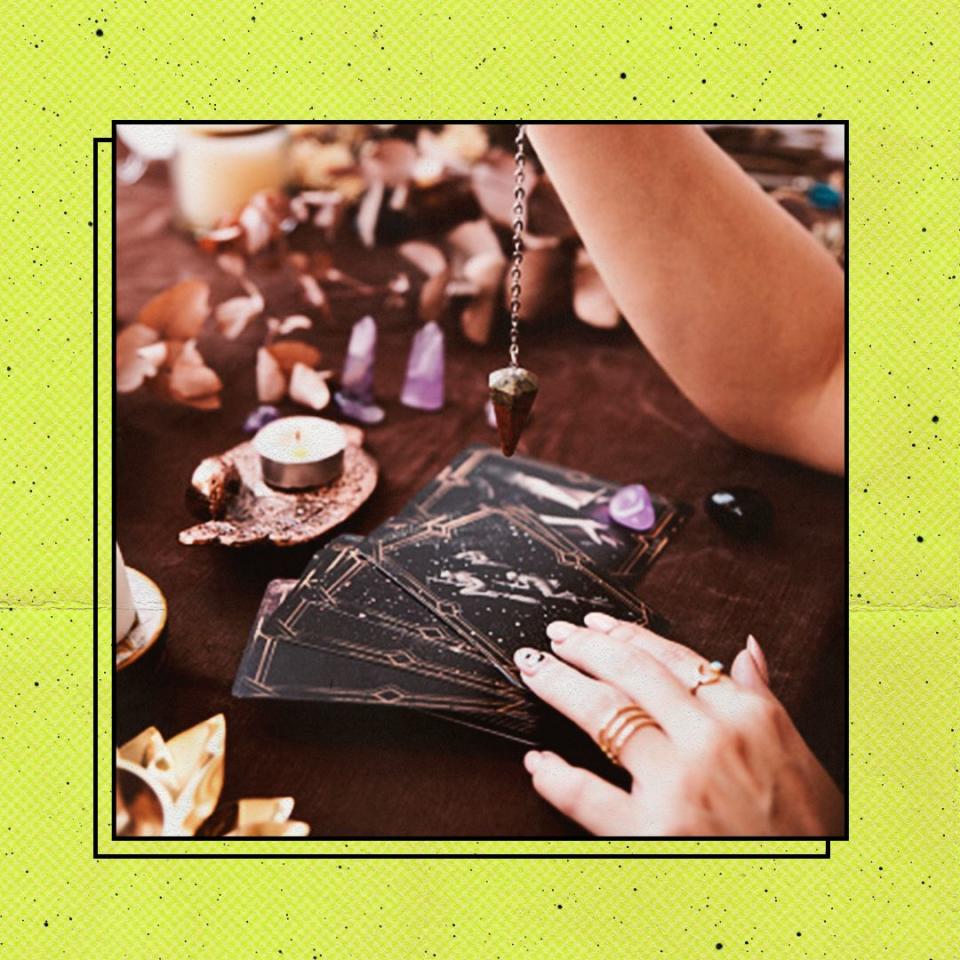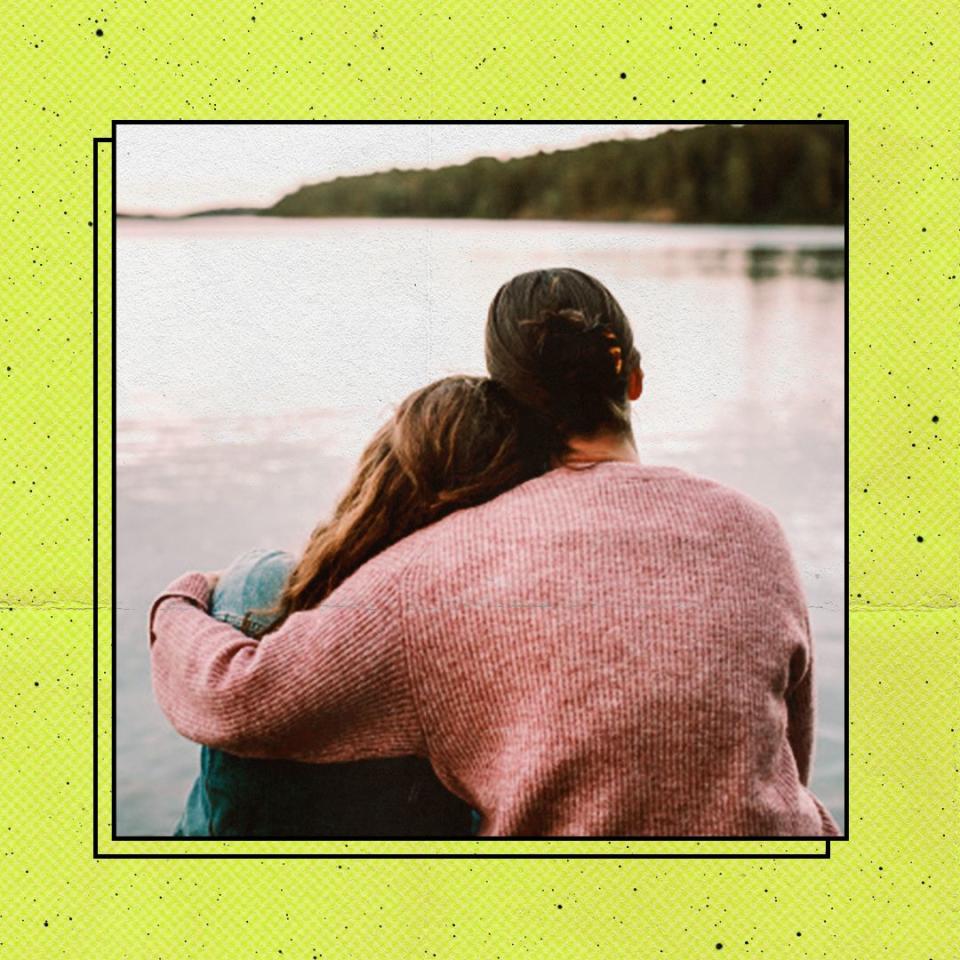Could a women’s circle change your friendships for the better?

You’re sat cross-legged, rooted to the floor beneath you. Your nose burns with the smell of sage in the air and the fairy lights strewn across the room wrap everything in a warm, fuzzy glow. And you’re not alone. Sat around you, gathered in a snug circle around a candle’s flickering flame, are other women, offering their time and undivided attention to being in the room with you. Phones are on silent, or tucked away in another room, keeping your mind safe from the distracting pings and beeps of emails, WhatsApps and social media. You’re here, you’re present and you’re ready to share. This, my friends, is a women’s circle...
Okay, so maybe what I’m describing sounds like a forced bonding ritual dreamed up in the Goop laboratory, but hear me out. Women’s circles are an ancient tradition found in multiple cultures and are all about creating a space for connection and togetherness. Often, they are held in conjunction with the new full moon as a way to harness lunar power and the divine feminine energy which has typically been associated with it. Admittedly, it might all seem a bit “out there” by today’s standards, but the practice started at a time when humans were more in sync with nature and lived in communal societies – and a sense of longing for this simpler past is driving a contemporary women’s circle resurgence.

The women’s circle resurgence
At the time of writing, #womenscircle has been used more than 180,000 times on Instagram and the tagged posts are a sea of tarot cards, fire pits, and groups of women gathered in forests, beaches and other outdoor spots, alongside the odd ~ mindfulness ~ infographic. And IRL, this burgeoning movement usually translates to three or more women sitting on the floor, forming a circle around an altar (which can be as basic as a candle or a crystal) and talking openly about what’s on their minds. You can hold all kinds of circles, from baby loss and grief circles to bridal blessing and menopause circles. No theme is off limits and it can be treated as a space to help individuals through any difficult time, whether that's abortions, sexual trauma, medical concerns, breakups, or anything else that's hard to address.
Of course, women’s circles are part of a recent shift towards alternative spiritual practices – in the US, a whopping 51% of 18 - 25 year olds practise tarot – and are often hosted in yoga studios or advertised with esoteric-sounding buzzwords like “sacred” and “witchy”. Not everyone vibes with manifestation and meditation, but they might be swayed by the unfiltered feminine bonding offered by a women's circle. If you look past all their new age accessories, they respond to a basic need: the desire to feel heard, witnessed and supported. This at least is what Anoushka Florence, author of The Women’s Circle, a practical guide to hosting and participating in women’s circles, tells me. “These spaces were community spaces, places where women could gather and put the world to rights,” Anoushka explains. “The circle is a container for each woman to be witnessed and listened to.”

Could women’s circles be the key to deeper friendships?
Anoushka’s words resonated within me, picking at an old scar I'd been trying to hide: as hard as it is to admit, I'm lonely. My calendar is full to the brim with dinners and drinks in the company of the brilliant women I call my friends, but I can’t honestly say that I feel fulfilled in my friendships. When was the last time I gathered with my friends and just started opening up about my life – no judgements, no preconceptions, no limits?
As I entered my twenties and was met with the pressures of the “real world”, with all its deadlines and bills, my social circle began to lose its intensity and spark. Gone were the days of university or school, when female friendships were the force anchoring me through a storm of hormones, first love and exams. Gradually, hour-long DMCs became rushed WhatsApp voice notes spouted on the commute. Over time, passionate, booze-fuelled performances of Taylor Swift’s “All Too Well” in the flat share kitchen turned into a quick catch up in a noisy coffee shop.
Part of my knows it’s silly to expect the movie-magic, ride-or-die female friendships I idolised in shows like The Bold Type or Sex and The City growing up, but I do want something deeper. And I’m not alone, either. Recent figures show that female friendships only last around 16 years on average, and 47 percent of women say they wish they could spend more time with their best friend.
Looking for answers, and tired of firing “what are you up to?” texts into the dark, I turned towards women’s circles and made the decision to host my very own circle in the hopes that it could create the more meaningful connections I'd been seeking.

Here’s what it’s like to host a women’s circle
Ready to open myself up to a renewed, more vulnerable energy in my social circle, I decided to throw a new moon circle for my three closest friends. After nervously messaging to invite them, worried about their potentially bemused responses, over the next few days I set about turning my living room into a peaceful oasis, scattering candles, crystals, roses, pillows and blankets decisively across the space.
Once the day rolled round, we burnt a smudge stick, meditated and pulled some tarot cards to kick off the experience. The room felt unusually intimate and cocoon-like, something that can’t be said for a busy bar or crowded shopping centre – allowing us to shrug off our inhibitions and fears of being overheard or judged by any bystanders.
After establishing a safe ambience, we got into the most significant portion of the experience: the sharing circle, where we spoke about what we wanted to attract, banish or achieve in the coming month. I asked the girls to meet the task with an open heart: jotting down whatever they wanted to get off their chest before we went around the circle and one-by-one read what we’d written to each other aloud. And not to be dramatic, but this was most vulnerable I have ever seen my friends. There were tears, confessions and realisations: nobody held back. For my part, it was the most candidly I’ve spoken without worrying about being a burden or kill-joy in a very long time.
Part of what made the experience so meaningful is that the conventions of women’s circles encourage free speech without interruptions or unsolicited advice. Typically, only one person can talk at a time, which is far from a normal occurrence in everyday life – when we’re often barging in with our own ideas and advice when others discuss their problems. For me, this rule was particularly powerful given that I’m a serial “fixer” and find it hard to give my friends free rein to be messy, always offering my opinion where it’s not needed. The process of holding judgment-free space for my friends made me realise how my tendency to always rush to a solution leads to resentment on both sides of a friendship.
For Anoushka, this is part of why women’s circles are so necessary in today’s culture – the safe space to share, like therapy, but in a peer-to-peer experience where there is no hierarchy or power dynamic. “The Circle is a container for each woman to be witnessed and listened to, not to be fixed,” Anoushka explains. “We don't need someone else to solve our problems. That’s actually a very disempowering thing to do. The most supportive thing we can do is to listen and to witness them. Just hold that space.”
One month on...
Holding a women’s circle has reminded me of the power of a deeper connection and made it clear that the way to rekindle the emotional depth of my friendships is actually pretty simple – it’s all about showing up. While, for some, a women’s circle might feel a bit too new age, the purpose at its heart is empowering and essential: it’s a space for women to gather, listen, witness, support and hold physical space for each other. A way to create the moments of community that we all crave as human beings.
Going forward, my friends and I have made an oath to text less and hold circles whenever necessary. A month down the line, I feel much closer to them and the type of friendships I’ve always longed for no longer feels out of reach...
You Might Also Like

